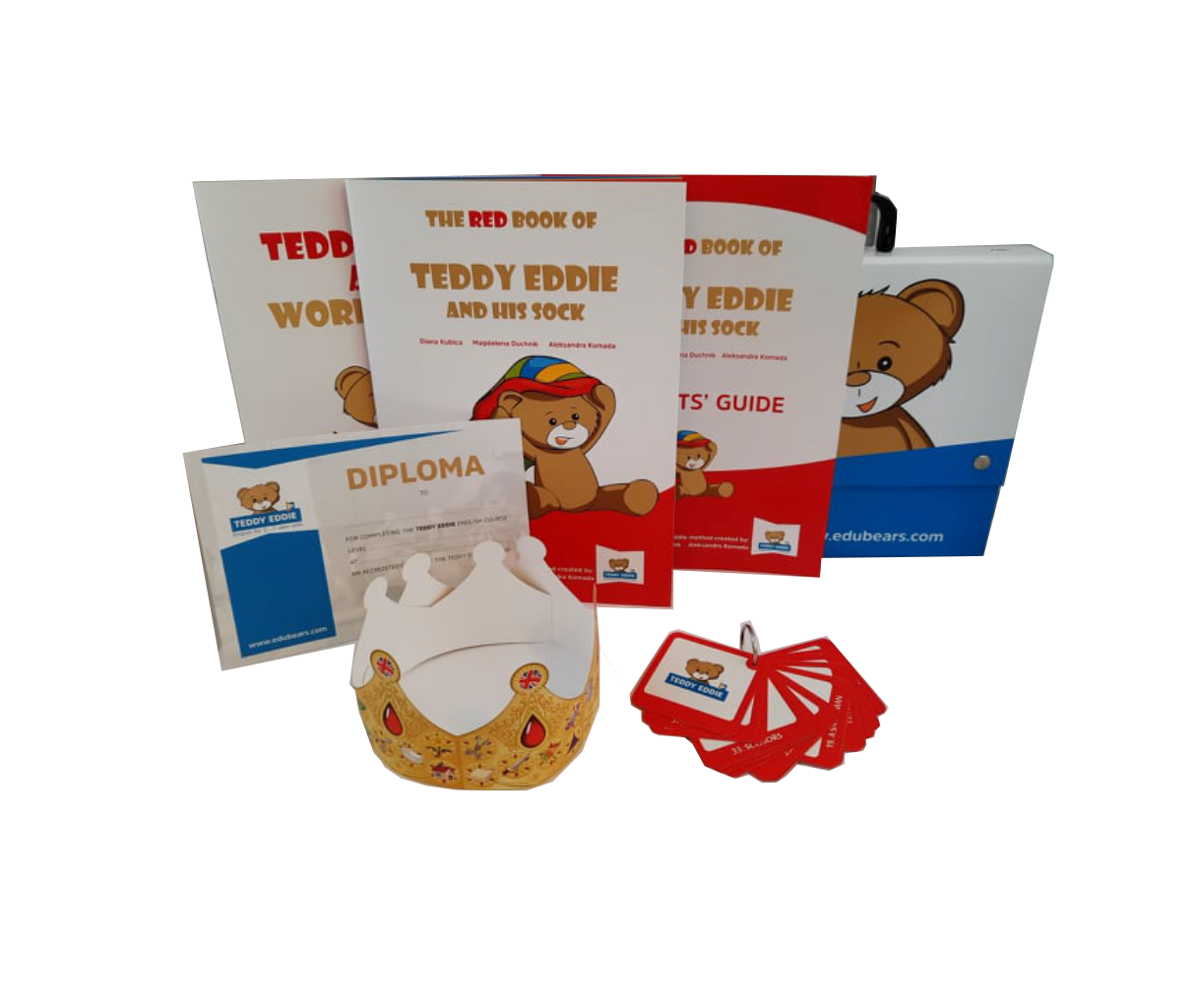Teddy Eddie STANDARD
4 – 5 years
Children start to have their first conversations in English. They act out stories and real-life scenes, and play games using English. They learn hundreds of words in sentences and different contexts.
- for beginners and students continuing their language education
- age: 4- to 5-year-olds
- a different book colour every year – yellow/blue/red
- lessons: 35 minutes twice a week
- groups: up to 10
Education Pack:
- Student’s Book
- Parents’ Guide
- access to the Playground App
- Teddy Eddie case
- Secret Booklet
- certificate and end-of-the-year gift

Who is Teddy Eddie STANDARD course for?
We recommend our Teddy Eddie STANDARD course for 4-years-old and 5-year-olds. The materials we have prepared for them are ambitious and unconventional, which is exactly in line with expectations of modern pre-schoolers! Children at this age use books, but our Student’s Book is only partly used in classes. Why? Our teachers focus on language games, dynamic activities and fun, while the Student’s Book contains all the course material to help parents control the learning progress.
What can you expect from Teddy Eddie STANDARD?
Teaching English to a 5-year-old is focused mainly on building a child’s love for a foreign language and that ensures that motivation will stay with him for years! Children in kindergarten very often already have English lessons and absorb the first words in that language. However, their enormous potential should be used to the maximum and that is why our Teddy Eddie STANDARD course goes much further. We provide full immersion in language (lessons are conducted in English), a lot of recordings (songs, rhymes, stories) and an exceptionally wide vocabulary range (always introduced and practised in full sentences) – that is our definition of English for 5-year-olds.
Parent-child cooperation
Learning foreign language, which takes place mainly during games, should be enhanced at home. English classes at a language school is one thing, but the best thing mom and dad or even the whole family can do is to strengthen absorbed knowledge by showing interest in the language course and revise the material outside the classroom.
We do not recommend checking the knowledge of vocabulary with a list of words – such methods usually do not bring positive results, but only discouragement and disappointment. What can we do instead? You can show your child some pages of Student’s Book and ask some questions (preferably in English): What is it? What can you do with that? How did you play with it at school? That kind of revisions at home are much more efficient because they are not stressful for a pre-schooler. The other advantage of learning together with your child is a chance to see how our lessons may look like.
